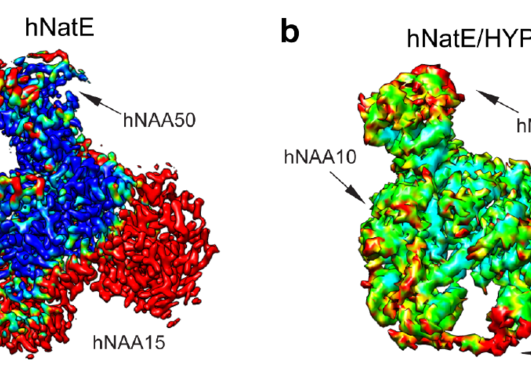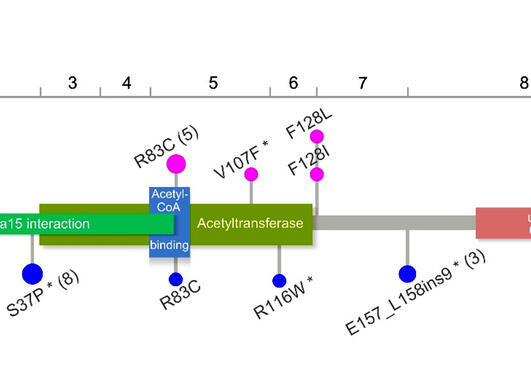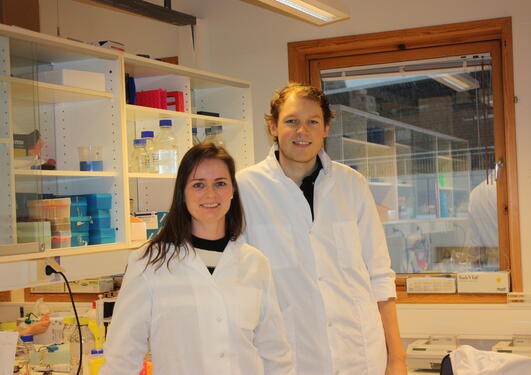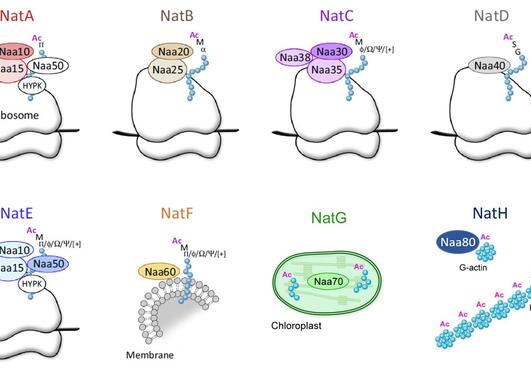Novel gene variants linked to developmental delay and hemihypertrophy
Several variants of the NAA10 gene have been found in patients suffering from developmental delay and hemihypertrophy. NAA10 steers the most common protein modification in humans: N-terminal acetylation.

Main content
In a joint effort with clinicians from Austria, Canada, USA and Colombia, PhD student Nina McTiernan, MSc student Christine Darbakk and Postdoc Rasmus Ree in the Arnesen lab identified novel disease-causing variants of the NAA10 gene. The affected children displayed partially overlapping phenotypes and were all found to harbor specific NAA10 variants by exome sequencing. The NAA10 protein forms the NatA complex together with NAA15, and is responsible for acetylation of several thousand different human proteins. A unique feature of these identified variants is their specific impact on impairing NatA complex formation while NAA10 otherwise remains intact as a monomeric protein. This means that it is possible to specifically define the observed phenotypes of these patients to the function of the NatA complex (NAA10 also has a number of other functions independent of the NatA complex). Hemihypertrophy is one such phenotype which may be specifically attributed to the lack of NatA mediated N-terminal acetylation of proteins, and which has not before been associated with pathogenic NAA10 variants.
This sheds light on the impact of protein N-terminal acetylation for human physiology, and expands our knowledge on the molecular mechanisms causing disease.
We thank the Research Council of Norway, Helse Vest and the Norwegian Cancer Society for their support.






